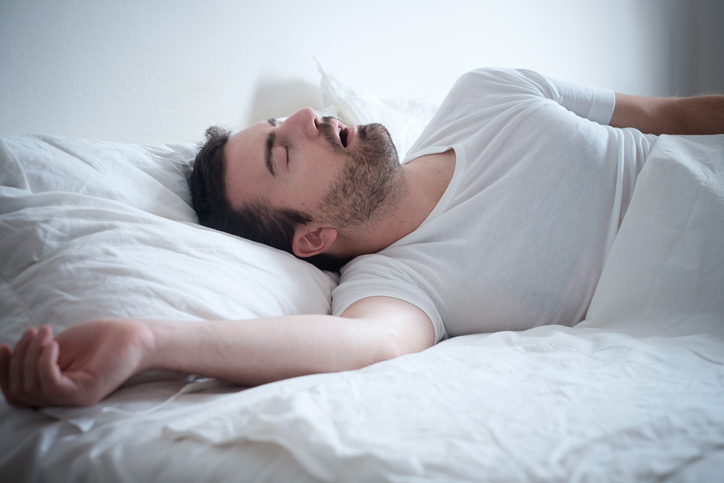The fact that at least 18 million Americans need sleep apnea treatment is shocking. And isn’t it bad enough that only 20% of all sleep apnea cases seek treatment? Sleep apnea can cause many awakenings per night, disrupting sleep and denying you various benefits. All that said, you may be wondering if you’re among the people who need sleep apnea treatment. But to know if you need sleep apnea treatment you first need to learn its signs.
1. Snoring
There are higher chances that you or someone you know snores. The grunting and snorting sounds are disappointing and may be signs that you’re not having a good sleep. But what exactly causes this condition? Snoring occurs when the throat and nose airways constrict, causing tissue vibrations.
In some cases, snoring may indicate an underlying medical condition. But there are times when it’s unrelated to any disease. Snoring can occur due to alcohol consumption or nasal congestion.
2. Excessive daytime sleepiness
Are you feeling extremely sleepy during the day? Not sleeping well at night will definitely make you feel drowsy during the day. And this is one of the most common signs that you need treatment for sleep apnea. Even getting the simplest tasks done may be hard when you have sleep apnea.
Keep in mind that operating machinery or operating a vehicle requires complete mental concentration, which fatigue and sleepiness can impair. Avoid doing anything that could put you or others in danger.
3. Waking up with a headache in the morning
Do you wake up in the middle of the night or early in the morning with a headache? If yes, you most certainly have sleep apnea. Morning headaches are more common when your body doesn’t acquire enough oxygen while sleeping due to breathing disturbances. The body must work even harder to obtain the oxygen required to function correctly.
In fact, if you typically get headaches just after getting up, you should act quickly and consult a doctor. The physician will diagnose you to see if you need sleep apnea treatment. Remember that morning headaches can be symptoms of a much worse condition that necessitates immediate medical attention.
4. Difficulty staying asleep
Do you frequently toss and turn in bed and worry that you’ll never get a good night’s rest? One of the typical signs that you need sleep apnea treatment is having restless nights. You may experience frequent nighttime awakenings, making it challenging to get and stay asleep for extended periods.
Of course, finding ways to manage your stress can help counter the problem, but only it’s stress-related. Otherwise, you would be better off getting medical help because the issue could be a symptom of an underlying cause.
5. Nighttime sweating
Sweating excessively during the night is a common sign of obstructive sleep apnea. Nighttime sweating more than three times per week may indicate obstructive sleep apnea. Other people might experience sweating every time they go to sleep.
Night sweats indicate a viral or bacterial infection. The brain has a harder time controlling body temperature when there are hormonal changes, which can cause hot flashes and night sweats. If you experience nighttime sweating in addition to the other symptoms listed above, you may have sleep apnea.
6. Dry mouth
Morning dry mouth is a common symptom of obstructive sleep apnea. Those who have trouble breathing while sleeping are more likely to breathe through their mouths. It’s normal for your mouth to expand when you sleep since your jaw and facial muscles relax.
When breathing becomes difficult, you may compensate by opening your mouth wider. The result is less saliva and a dry mouth. Seek immediate sleep apnea treatment if you experience morning dry mouth.
7. Gasping for breath when sleeping
Most people with sleep apnea don’t realize they have a problem until they wake up because the condition sounds identical to snoring but has a crucial distinction in breathing patterns. Sleep apnea causes slowed breathing throughout the night and repeated pauses that can last several seconds.
Extreme episodes of this may last from 10 seconds to a full minute. Complete or intermittent cessation of breathing during sleep characterizes obstructive sleep apnea (OSA). It occurs when the airways become blocked.
8. Feeling irritable and moody
Another common sign of sleep apnea is irritability. Lack of sleep can mess with your emotions and make you feel moody every now and then. Over time, untreated sleep apnea can cause more than just mood swings. You may feel angry at times even if nothing has irritated you.
The reason for this occurrence is the changes in gamma-aminobutyric acid (GABA), which influences mood, cognition, and even physiological processes like blood pressure. A disruption in the balance of these substances causes the brain to lose its ability to maintain emotional stability. Eventually, it increases stress levels, causing irritability and mood swings.
9. Having trouble focusing while awake
You can avoid sleeping during the day but still have trouble focusing on a specific task. In such a situation, your eyes may be wide open, but your mind may not function well. Inadequate sleep might tamper with your attention and memory, making you lose concentration frequently.
Furthermore, sleep apnea can produce excessive weariness, resulting in poor concentration. You may even notice that you can’t focus on easy chores like watching TV, driving or other activities that need complete concentration.
Complications of untreated sleep apnea
Left untreated, sleep apnea can trigger other health issues, such as high blood pressure, stroke, and heart failure complications. It can also cause excessive daytime sleepiness and increase the risk of accidents while driving, operating machinery, or other tasks requiring coordination.
Ensure that you seek sleep apnea treatment if you notice any of the mentioned signs. But remember that the symptoms above are just the tip of the iceberg. There are numerous other warning signs of this condition that you watch out for.
Why Dr. Madison is the best specialist for sleep apnea
Dr. Madison F. Richardson F.A.C.S. is a reputable Otolaryngologist and one of the best sleep apnea treatment specialists. With over 40 years of expertise and training, he’s a master in diagnosing and treating sleep apnea, snoring, disorders of the ear, nose, and throat, as well as head and neck cancer. Book an appointment with Dr. Madison to get the deep, restful sleep you’ve been longing for.

